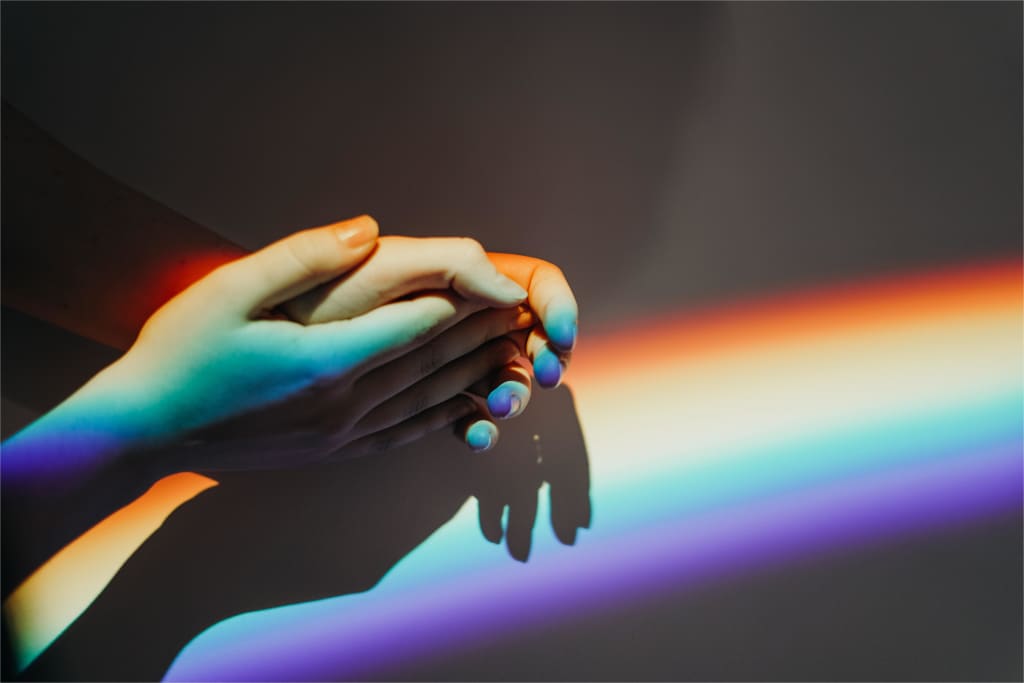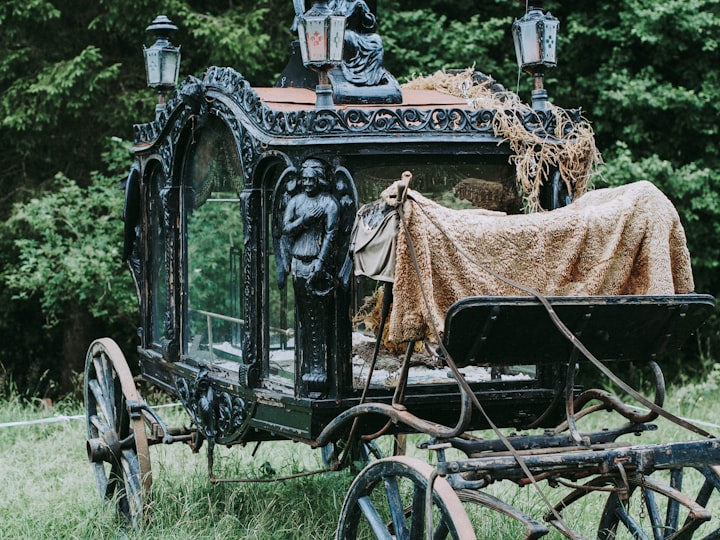F/F Books That Are Good, Actually!
Dispelling the myth that there are no good lesbian books.

If you’ve spent any time on LGBT+ Twitter, you’ve probably come across the argument that there are no decent female/female (F/F) books out there. The argument goes that there are plenty of great male/male (M/M) books on offer, and if this is what you were looking for, you’d have no trouble finding a novel that resonates with you. However, if you were looking for some sapphic stories, you’ll probably come up empty or with a fist-full of trash.
This is wrong! I’ve spent the last year purposefully seeking out F/F fiction and have compiled a list of what I consider to be high-quality, engaging, and thoroughly entertaining F/F books. Now it’s time for me to share my top picks.
I’ve categorized the books by genre in the hope that everyone can find something that matches their reading tastes. You’ll probably notice that some genres are a little lighter on recommendations than others. That’s because I wanted to focus on the books I’ve personally read, and like all of you, I have my preferences.
Sci-Fi and Fantasy
Crier’s War by Nina Varela

“Justice was a god, and Ayla didn’t believe in such childish things. She believed in blood.”
Impossible love between two girls — one human, one Made.
A love that could birth a revolution.
Crier’s War is set in the fictional Kingdom of Rabu, a place where humans are second-class citizens and the Automae rule. The automae were initially created to be the pretty playthings of human royals, but they eventually rose to power during the War of Kinds. Ever since, humans have been slaves to the stronger (and often, more beautiful in an eerily perfect way) automae masters.
“It was never really a choice, was it? Wanting her. Killing her.”
The story is told from the perspectives of Ayla, a downtrodden human who wants to avenge her family’s death, and Crier, the daughter of the automa king. Crier was made to be the epitome of grace, beauty, and perfection and her future seems certain. However, everything starts to change when she meets her new handmaiden, Ayla.
It’s a true enemies-to-lovers story filled with revenge, mystery, betrayal, politics, and a slow-burn romance.
If you read Crier’s War and like it, make sure to pick up the second (and final) book in the series, Iron Heart.
Why I Liked Crier’s War
- Despite being her debut novel, Varela smashes it out of the park. The fantasy world she creates is intricate, well-crafted, and enthralling.
- While the romance between Ayla and Crier is a central theme in the book, the novel has a whole lot more to offer. The side characters and the constant political shifting in the world feel rich and real.
- Ayla and Crier are both strong and compelling main characters, while both offering a different perspective on what it means to be brave and capable young women.
This Is How You Lose the Time War by Amal El-Mohtar and Max Gladstone

I want to be a body for you. I want to chase you, find you, I want to be eluded and teased and adored; I want to be defeated and victorious — I want you to cut me, sharpen me.
This is How You Lose the Time War is a science fiction epistolary novel where love blossoms between two rival time-traveling agents. It has love, treachery, gritty violence, and mystery mostly told through the captivating correspondence between agents Red and Blue.
One reviewer on Goodreads described the book as “Killing Eve but they are time travelling pen pals,” which is an apt description.
Why I Liked This Is How You Lose the Time War
- Stunning lyrical prose. If you’re a fan of vivid, lyrical, and whimsical writing, then you’ll like this book. However, many readers didn’t like this novel for the same reason.
- It doesn’t try to explain the universe. How does time travel work? Why don’t they have bodies? It doesn’t matter because this is a book about love that transcends time and won’t die despite the immense risk that comes with it. Sometimes SciFi authors go heavy on the logistical details of the universes they create in an effort to convince the reader the world is real and makes sense. However, often this has the opposite effect, and you can see plot holes popping up everywhere. I appreciated that This Is How You Lose the Time War didn’t go down that route — You see a snapshot of that universe but don’t need to know how it came to be or how it works.
- Epistolary novels (stories told through letters) are rare, and good ones, even rarer.
Ice Massacre by by Tiana Warner

Lesbian Mermaids — need I say anymore? I’m feeling generous, so I will. Every year, the island of Eriana Kwai sends its warriors out to sea to kill mermaids. These mermaids have been ravaging the local fish stocks and leaving the islanders hungry.
However, this year, the massacre will be different from any that has come before. Instead of sending men out to battle, they’re sending teenage girls. Why? Because a mermaid’s supernatural beauty lures men to their death, and girls will (presumably) be immune to their charms. We follow Meela, an Eighteen-year-old who has already lost her brother to a previous massacre, as she trains to fight and goes off to sea with the other female warriors.
Ice Massacre covers a lot of ground in its themes — Doing what’s necessary to ensure your community’s survival while ensuring your personal survival, who is truly evil, what it means to love the enemy, the pressures of conformity, and much more. It’s also grittier and more violent than you would expect from a YA novel.
Gideon the Ninth by Tamsyn Muir

“But Gideon was experiencing one powerful emotion: being sick of everyone’s shit.”
Gideon the Ninth is a galactic Sci-Fi story featuring necromancy, deadly trials of wits and skill, tons of action, and a lesbian main character.
In this universe, there are nine houses, each with its own necromancy specialty. The Emporer demands a representative of each house, along with their cavalier (a combat-trained bodyguard) compete in a series of dangerous trials. We follow Gideon, a badass, confident orphan with great biceps, as she tries to leave the Ninth house. Chaos and drama ensue.
Gideon the Ninth is fantastical, original, rich, and complex. Maybe a little too complex? Readers’ primary criticism with this book is that you’re often left confused about what’s happening. So, if you’re someone who needs a straightforward narrative, then this book might not be for you. However, when I stopped worried about trying to make sense of everything, I had a lot of fun with this novel.
Historical Fiction
The Seven Husbands of Evelyn Hugo by Taylor Jenkins Reid

“People think that intimacy is about sex. But intimacy is about truth. When you realize you can tell someone your truth, when you can show yourself to them, when you stand in front of them bare and their response is ‘you’re safe with me’- that’s intimacy.”
I firmly believe that the less you know about this book before going in, the better, so I’m going to keep the synopsis vague. You follow Monique Grant, a budding and unknown reporter who is approached by the aging Hollywood icon Evelyn Hugo. Evelyn has personally selected Grant to write her memoir, a tell-all that is sure to shock the world.
“Never let anyone make you feel ordinary.”
The Seven Husbands of Evelyn Hugo is exceptionally well written, captivating from the start, vivid, and will have you reaching for the tissues. For me, this was the rare breed of book that hooks you and almost becomes a permanent feature of your hand because you can’t put it down. Just read it!
Horror
Into the Drowning Deep by Mira Grant

“Humanity was cruel, and if you were prepared to try to find a bottom to that cruelty, you had best be prepared for a long, long fall.”
We’re back with Mermaids, only this time, the truly vicious, terrifying kind.
In 2015, a research vessel called The Atargatis set sail to the Mariana Trench in search of Mermaids. This vessel was commissioned by Imagine, an entertainment company famous for its scream-inducing horror movies, and the goal was to make a mockumentary. Unfortunately, something went horribly wrong, and the crew never returned. The only thing they left behind was the gruesome footage of their demise.
Seven years later, a new crew, including ambitious young scientist Victoria Stewart, is headed to the same location to investigate the incident. Victoria’s sister was one of those massacred in the first voyage, and she’s eager to uncover the fate of her lost sister.
“It was beautiful, in its own terrible way. So many monsters are.”
If you’re looking for a book with some great representation, Into The Drowning Deep is an excellent choice. We have a bisexual, an autistic lesbian, and someone with physical disabilities. However, there’s also plenty more to love about this book. For example, the details and descriptions surrounding marine biology really help add realism, further allowing you to immerse yourself in the story. So often, people struggle with the more “out there” creatures from fantasy (like mermaids) because they seem cartoonish, but they felt real in this novel.
Contemporary
The Miseducation of Cameron Post by Emily M. Danforth

We follow Cameron Post, who tragically loses her parents in a car crash. While she should be beside herself with grief, she’s surprised that her first thought is relief — relief that they’ll never know that only hours earlier, she’d been kissing a girl.
Now living with the conservative Aunt in small-town Montana, hiding her sexuality becomes a priority. However, when Cameron’s intensely close friendship with her friend is spotted, things start to unravel.
Should you read this one if you’ve seen the movie? Yes, absolutely. While the film spends the majority of the runtime at the camp itself, the camp is just one part of the story in the book (she doesn’t go to the camp until around halfway through).
Why the Bad Reputation?

If there are plenty of great F/F books, then why do so many people believe the opposite? I think it comes down to exposure to LGBT+ content in the mainstream reader base. M/M content has long been popular with both readers and writers since the days of internet fan fiction sites. There’s some debate about just why M/M stories are so prevalent in fan fiction, but the two leading theories go like this:
- Fan fiction builds on characters and narratives from popular books, TV shows, and movies. Often, this media has more fleshed-out male characters than female characters. Furthermore, men still make up 57% of series regulars on TV, despite only making up 49% of the population. Put simply, more men equals more material.
- Fan fiction, and more broadly fiction, is more popular with women. A study of the demographics on FanFiction.Net found that 78% of those who disclosed their gender identified as female. And in the realm of traditional fiction, women account for 80% of all fiction sales. When it comes to fan fiction, at least, the majority of writers and readers are women. So, why do women in fanfiction like to write M/M stories? It could be several things. Perhaps some women fetishize gay men; perhaps there’s less stigma writing gay romances as a woman (their sexuality is unlikely to be questioned), maybe they’re crushing on one or more of the male leads.
Whatever the reason, it’s clear that fiction readers (who are primarily women) typically enjoy an M/M story. This is also evidenced by the wildly popular gay romance books that have hit the shelves over the last few decades. For example, the 2019 book Red, White & Royal Blue by Casey McQuiston was included on the New York Times Bestseller List and is being made into a movie. 2007’s Call Me By Your Name by André Aciman was made into a film starring Timothee Chalamet and Armie Hammer. Simon vs. the Homo Sapiens Agenda, by Becky Albertalli, was also a book-turned box office hit.
By contrast, there’s a distinct lack of both wildly successful lesbian books and book-to-movie adaptations. I think it’s fair to say movies have a more significant impact on crafting the public perception of a genre than books, simply for the fact that more people are movie-goers than readers. And from a production house perspective, it makes more sense to (it’s less risky) to only create adaptations of the most popular books. This mainstream lesbian content drought has led to the perception that there are no good lesbian books — but we know that isn’t true. Have fun reading!
Sources
- https://en.wikipedia.org/wiki/Fan_fiction
- https://www.theguardian.com/books/2019/dec/07/why-women-love-literature-read-fiction-helen-taylor
- https://fanslashfic.com/2018/02/12/why-is-there-so-much-gay-shipping-in-fanfiction/
About the Creator
Nancy Driver
Hey there, I'm Nancy. I write about things that interest me - Reading, technology, science, and culture.






Comments
There are no comments for this story
Be the first to respond and start the conversation.